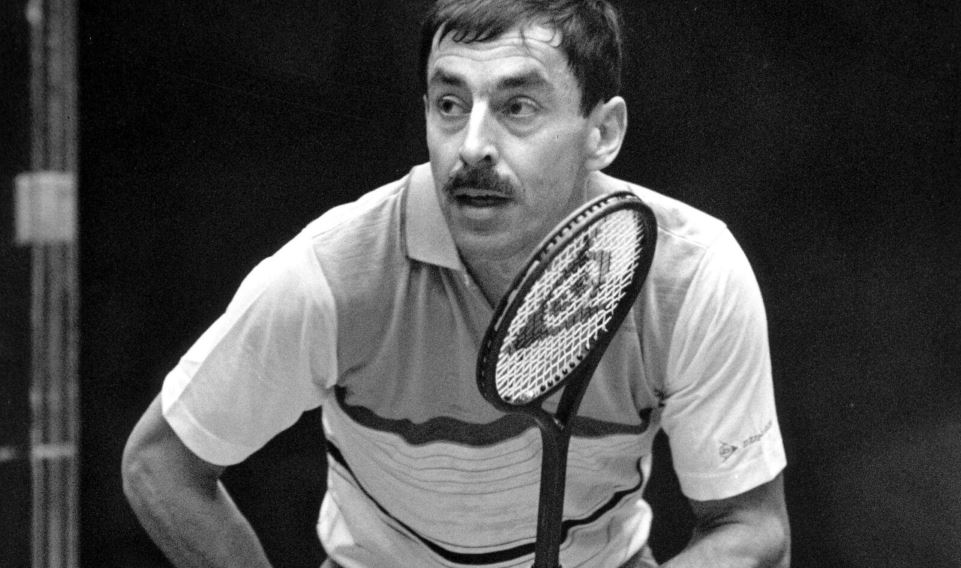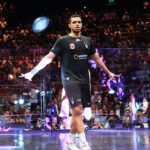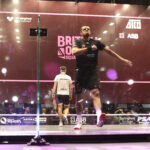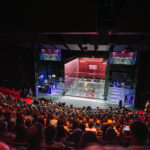2023 marks 50 years since the great Jonah Barrington lifted his final piece of silverware at the British Open. Ahead of this year’s edition of the ‘Wimbledon of Squash’ – which kicks off on April 9 – RJ Mitchell caught up with Jonah to discuss his memories of that final triumph.
Tickets for this year’s British Open are on sale now – get yours here.
——
The 2023 British Open is one which is particularly poignant for the great Jonah Barrington as it marks the 50th anniversary of his sixth and final success at the game’s most historic championship.
While the great man’s almost two-and-a-quarter hour, five-game triumph over his arch-rival Geoff Hunt in 1972 was his most memorable, Barrington’s systematic 9-4, 9-3, 9-2 destruction of Gogi Alauddin a year later represented his most decisive display in the game’s premier tournament.
Reflecting on this moment, Barrington believes that producing such a compelling performance – which had many seasoned observers suggesting his dominance would extend for years – made it tougher to accept that this was to be his final triumph at the event which he ranks above all others.
The 1973 championship saw Barrington defeat Ken Hiscoe in a bruising five game semi-final, but the shock of the tournament came in the other last four encounter when Alauddin edged Hunt over four increasingly tense games.
And while Alauddin was able to weave a spider’s web of intricate and accurate shot-making around the great Aussie, Barrington, struggling with the effects of a cold, resolved to take the game to his Pakistani opponent from the outset.
As Barrington recalled, the impact was spectacular: “Without a doubt ’73 was my most decisive performance in a British Open final.
“With Gogi I knew I could control the centre of the court and that if I took the volley on he could not cope with that. In his mind I was the fittest player on the circuit and I wouldn’t break down like other players when he was moving them around and weaving his web.

“I felt totally in the zone and was putting balls away, including three overhead nicks with two on the backhand high, if memory serves. Poor Gogi just wasn’t at the races.
“The real pressure for this one came after my semi-final with Hiscoe because afterwards I started to feel increasingly unwell with a very heavy cold and my wife Madeleine got eucalyptus and dosed me through the night with it.
“Then when I went on court I had a handkerchief laced with eucalyptus and maybe that was what put poor old Gogi off!
“But it cleared me and because I didn’t want the match to be extended, I took control of the middle of the court and I never relinquished it. The rest is history, as they say.”
Yet while Barrington’s destruction of the out-gunned Alauddin may have been brutal, 50 years later the squash legend has nothing but respect for his former foe: “Gogi was unbelievably light, and at less than eight and a half stone, ridiculously nimble. He also had a marvellous squash brain and moved the ball with such a soft stealthy skill, it was a one-off technique.
“Today’s players wouldn’t have known what was happening if they played Gogi! I remember in Canberra, he was playing Hiscoe and I was up in the gallery watching the knock-up and after about 30 seconds I was hearing comments like: ‘Well this isn’t going to take long! Hissa will eat this little fellow for breakfast!’
“So the Aussies were really disparaging about Gogi but poor old Hiscoe – who was a wonderful player to watch with a fascinating game and a murderous attacking boast – was completely out-foxed by this little pipe-cleaner with a technique that was just totally different.
“Gogi’s big problem was that when he hit the ball hard you knew it was coming because he had to wind up so much to get the power, but he had such soft control over the ball and he just weaved a web. In modern terms, Ali Farag would be the most similar in style to Gogi and he just mesmerised you. So I was very pleased to put him away in straight games.”
This triumph was to prove the end of Barrington’s British Open dominance, and the 81-year-old concludes that his match with Alauddin saw him reach his peak performance.
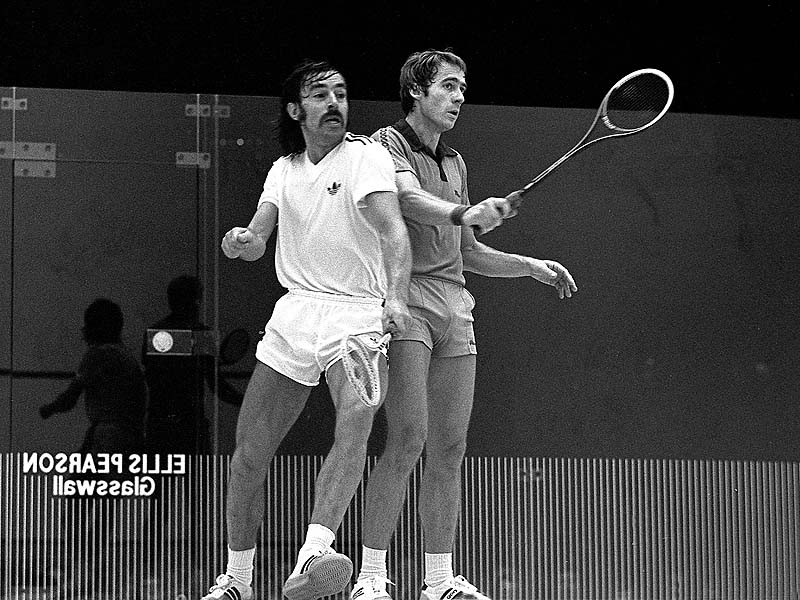
“If someone had told me that ’73 was going to be it, I would never have thought so, not at all.” Barrington says.
“All I ever had in my mind was that I was going to work to get better and I did feel I had a lot more to develop. But there is a saying and that is: ‘You only know your peak when it’s gone.’
“Did I ever play better than that tournament? Well, there was so much that came together, and everything was good, and I was playing with so much clarity, but ultimately that proved to be my peak.
“I did feel I was in a position to win a lot more, but I developed a back problem and it proved not to be.”

